In Part I of this series, we covered allergic reactions to ester based local anesthetics used in dentistry. These occur very rarely now because the entire class of ester local anesthetics has essentially been phased out in favor of amide based local anesthetics. Nevertheless, allergic reactions can and do occur after the “novocaine shot.” So the question is, what is/are producing the reactions?
Methylparaben
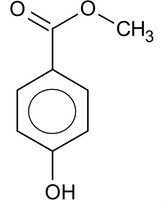
Methylparaben
Methylparaben is a preservative used in the pharmaceutical, personal care, and food industry. It is found in many cosmetics currently on the market in both the United States and elsewhere. Methylparaben was at one point included as a preservative in dental local anesthetics. Its main function was to inhibit the growth of bacteria and to help maintain the sterility of the anesthetic.
Methylparaben is chemically very similar to PABA – the metabolic by-product of many ester-type local anesthetics. As outlined in Part I of this series, PABA can produce allergic reactions in some individuals. Because of this similarity to PABA, when methylparaben is injected as part of a local anesthetic, allergic reactions can occasionally occur.
Because of this, since the mid 1980s, the U.S. Food and Drug Administration mandated the removal of methylparaben from single use dental local anesthetic cartridges. As a result, unless the dentist is using local anesthetic from a multi-use container (which is incredibly unlikely in your typical private practice in the U.S.), you will not be exposed to methylparaben as part of the local anesthetic injection.
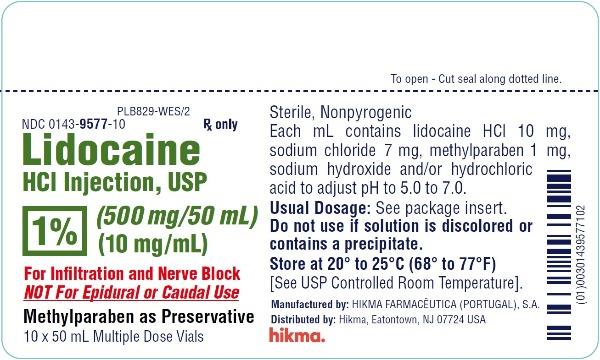
Methylparaben listed as a preservative in 1% lidocaine. This type of local anesthetic is typically only seen in hospitals and physician offices.
Many multi-use vials of local anesthetic still contain methylparaben – as seen above. But those are typically seen in hospital settings and in individual physician offices.
Sulfite Sensitivity
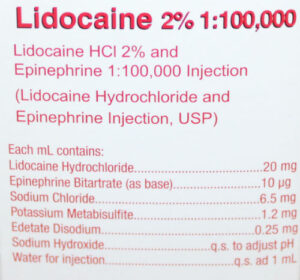
Lidocaine with epinephrine – used in dental offices – has sulfites.
Sulfites are a class of chemicals used a preservatives. Like methylparaben, sulfites are used in a variety of ways. They are most commonly used to preserve food and can frequently be found in wine, jams, some frozen seafood, and many other products.
In dentistry, sulfites are added to local anesthetics that contain epinephrine. The sulfite – most commonly seen as potassium metabisulfite – is used to prevent the breakdown of the epinephrine. This allows the local anesthetic to have a shelf life of more than a year.
Exposure to sulfites in food as well as a “novocaine shot” can provoke allergy-type symptoms in susceptible individuals. If you have asthma, you are much more likely to be sensitive to sulfites than non asthmatics.
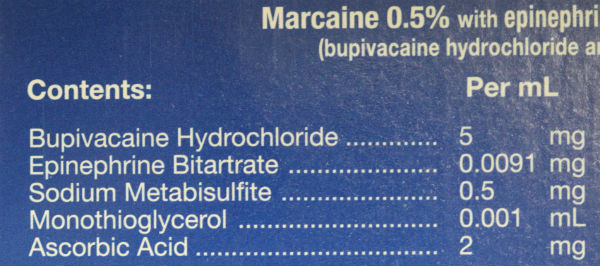
Bupivicaine – marketed under the brand name Marcaine – showing Metabisulfite as an ingredient.
So what would an allergy to sulfites look like? The reaction would have all the hallmarks of a systemic reaction to an allergen. In this article, a patient was injected repeatedly on one side with a dental local anesthetic containing metabisulfite. Within a day, she was experiencing mild swelling at the injection site. After a couple of days, she experienced severe facial swelling with pain and was admitted to the hospital. Allergy testing later concluded an allergy to bisulfite found in the local anesthetic.
What to do if You’re Allergic to Sulfites
So, if you suspect you may have sulfite sensitivity, be sure to ask your dentist to use a local anesthetic that does not contain epinephrine. Dental local anesthetics that do not contain epinephrine do not have metabisulfite.
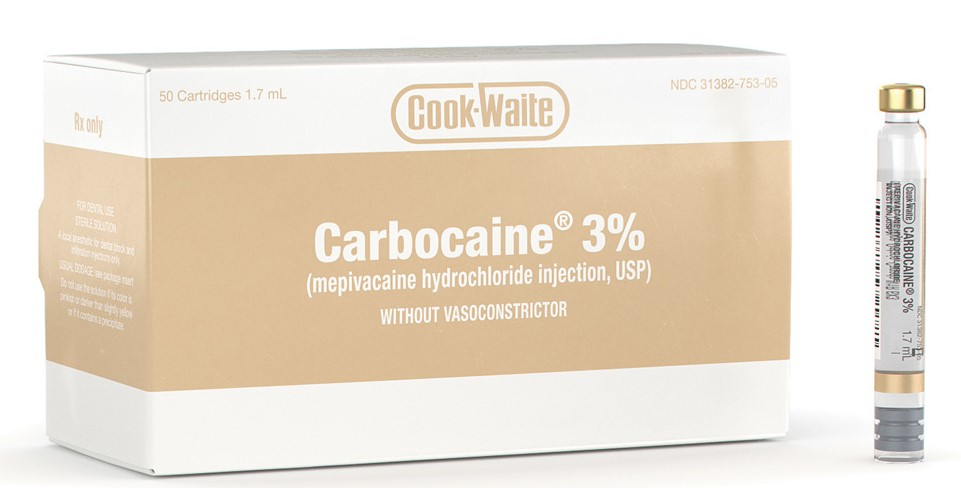
Carbocaine does not have epinephrine – so it does not contain any sulfites
There is an important distinction between sensitivity to sulfites and allergic reactions to sulfites. The Cleveland Clinic has a nice summary located here.
Note that sulfite sensitivity and sulfa-drug allergies are totally different! So if you have an allergy to sulfa drugs – more formally known as sulfonamides and includes the brand name Bactrim – it does not mean you are allergic or sensitive to sulfites. And vice versa. The reference is located here.
So what’s next in Part III? We’ll cover true allergies to dental local anesthetics – which are extremely rare but are possible.
